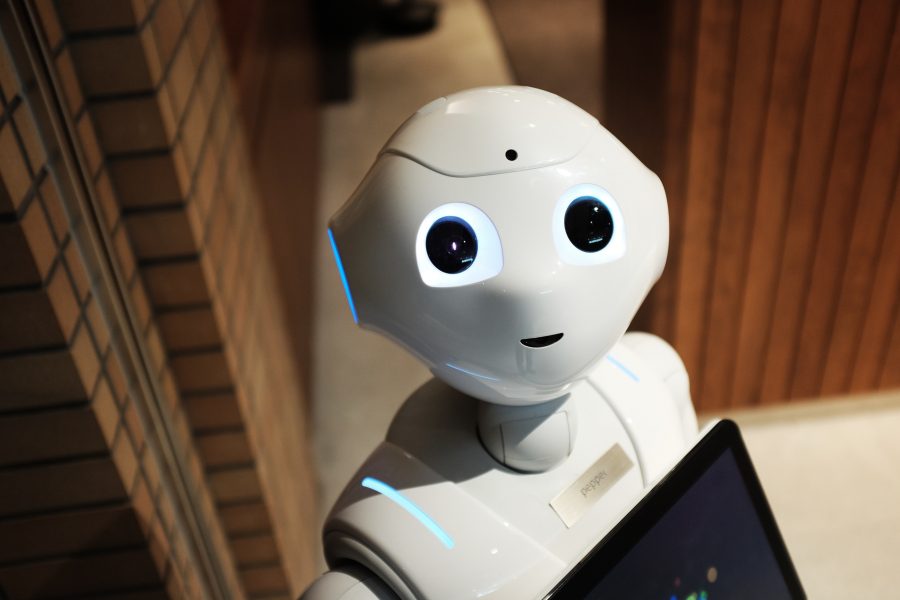Artificially intelligent automation technology, although it is a relatively new technology, has gradually ceased to be an innovative trend to become an unquestionable reality.
The very nature of the markets, the changing business fabric and the rise of new technologies have resulted in business processes with a large volume of information, technical and analytical tasks.
This new scenario is especially suitable for artificially intelligent automation processes, having enormous potential to eliminate the most repetitive manual processes that consume more time in the daily work routine.
Therefore, artificially intelligent automation in the business environment is a natural resource to optimize the performance of companies away from the qualifying trend to essential.
Want to know more about the importance of artificially intelligent automation? Let’s look at some examples of its functionalities and the advantages it brings in relation to performance and productivity.
In this regard, we take insights from Glenn Summerfield, a top of the line entrepreneur, innovator and investor, proposes some ideas regarding the incorporation of artificially intelligent.
Ten uses of artificially intelligent automation in companies, according to Glenn Summerfield
In all likelihood, you will already know the numerous advantages that artificially intelligent automation software provides. Therefore, we will focus on offering you some more light on the tasks or situations in which this technology is a great competitive advantage.
1. Payroll Administration
All processes related to payroll control and management, including all kinds of legal and administrative requirements, become a more attractive task thanks to artificially intelligent automation. Being able to collect, control and manage the factors of this whole context and connect it optimally.
2. Data migration
Legacy billing systems must interact with other systems, and certain relevant data needs to be obtained. Usually, they are tasks that are developed by hand with a large percentage of human error. With Artificially intelligent automation, manual labour is eliminated, and the possible administrative errors that it entails are avoided. It also allows the updating of data and the integration of different applications.
3. Preparation and Sending of Reports
More and more often, companies require periodic reports to have real, updated information and undertake the best possible decision making. Automated solutions can easily generate reports, analyze their contents and, based on them, send them to interested parties.
4. Customer Relationship Management
The tasks of relationship and contact with the client depend on several different systems, which can affect the final experience, adding a large volume of simple repetitive tasks.
This is the ideal scenario to configure an artificially intelligent automation system to process different areas as quickly and immediately as possible, increasing customer satisfaction.
5. Recruitment of Personnel
Human resources management includes functions and different tasks in the recruitment processes. Artificially intelligent automation bots can be implemented relatively quickly and efficiently providing speed and transparency to the entire process.
6. Order Processing
Another functional area that involves a good number of tasks, daily and repetitive processes: addresses, enter data, invoices, shipping labels, or control and management of the warehouse inventory. An artificially intelligent automation system could develop these functions with all naturalness and 0% errors.
7. Control and Expense Management
It is true that there is a great alternative of software options to undertake this function, but artificially intelligent solutions can become much more efficient. They can perform much more specific tasks such as, for example, the automatic extraction of important fields of receipts or invoices necessary for each task to be carried out.
8. Supplier Management and Maintenance
As with customers, supplier management requires thorough control and monitoring of their performance. All tasks related to knowledge, communication and supplier management can be organized and automated without losing efficiency.
9. IT Support and Help
The IT services of a company are essential to maintain an automated and technological control of new users. These tasks can be programmed and configured to be carried out by means of artificially intelligent automation, reducing the time in the said task and having more time to develop other tasks.
10. Product Categorization
Especially in the case of retail companies, product management includes work as repetitive and tedious as updating the item code or reference number with the product. Robots can be used to automate this process, which saves thousands of hours of work.
Artificially intelligent automation tries to avoid living with a series of repetitive tasks that can be the engine of errors and time and performance failures. Its versatile and flexible character for any business niche makes this technology is highlighted as a primary resource for business management.

























Leave a Reply